Since the beginning of the 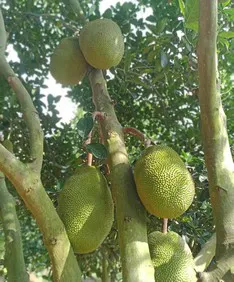 Corona crisis, freight rates have risen significantly, especially for air freight. Now, two years after the outbreak, companies continue to suffer from the huge transport costs. "Due to the continuous increase we had to accept, the current freight rates are 3-5 times the pre-Corona times. Unfortunately, there is currently no improvement in sight," explains Nicola Winter, Managing Director of Winter Trading Ltd, based in Hamburg.
Corona crisis, freight rates have risen significantly, especially for air freight. Now, two years after the outbreak, companies continue to suffer from the huge transport costs. "Due to the continuous increase we had to accept, the current freight rates are 3-5 times the pre-Corona times. Unfortunately, there is currently no improvement in sight," explains Nicola Winter, Managing Director of Winter Trading Ltd, based in Hamburg.
Right: jackfruit production.
The internationally branched company is responsible for the European marketing of Thai flight exotics from the Koerner Agro group of companies. "Compared to other overseas regions, freight rates are significantly higher in the Asian region because there is a lot of competition there, including expensive electrical parts that need to get to Europe quickly. Nevertheless, the supply of airfreight was guaranteed throughout the pandemic period, so there were no significant bottlenecks," Winter continues.
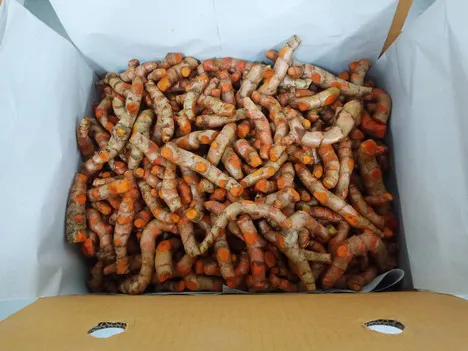
Fresh turmeric from Thailand
It is true that there were temporarily noticeable price differences between the individual products, which on the one hand can be attributed to the tense freight situation and on the other hand to external influences, such as floods or unusual storms, in the origin. "The current inflation increase plays only a minor role at the moment since we have already had to increase our prices several times anyway due to the freight situation and we are also already in a higher-priced market segment."
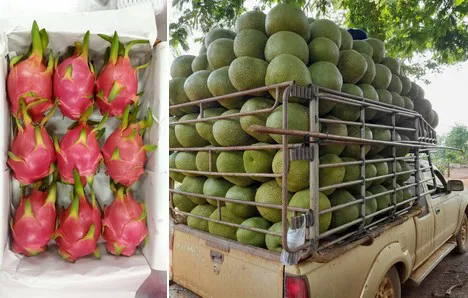
Left: Dragon fruit for export - Right: Jackfruit, fresh from the tree
Year-round exotic imports
The relatively stable weather in Thailand means that most of the produce grown there can be offered year-round, he said. "Rambutan and mangosteen, for example, are seasonal products that we can only stock for a short time. On the other hand, our classic favorites, such as baby corn, lemongrass and Thai chili, are harvested and traded twelve months a year. Dragon, passion fruit and fresh jackfruit in particular have enjoyed increasing popularity in recent years, although the latter item is less traded on the fresh market (it is sold by Koerner Agro as frozen raw material for meat substitutes). Okra is also continuously supplied fresh, although large-scale cultivation in several countries has now led to a highly competitive market."
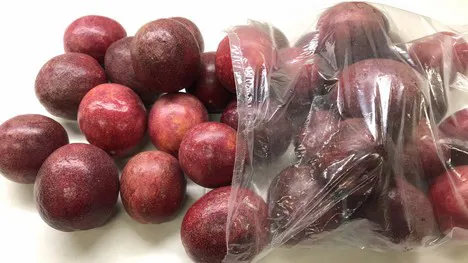
Fresh passion fruit
For strategic reasons, Koerner Agro is mainly dedicated to marketing unique niche products, some of which grow and thrive only in Thailand and some of which have a distinctive taste unlike products from other countries of origin. Winter: "Our Thai Chili is a strong item, the same goes for our green papayas, which, unlike conventional papayas, are not used as a fruit but rather for salads. In addition, babycorn is a year-round volume item. Despite competition from South Africa, we don't see any drop in volume here, even during the season there." The same applies to lemongrass and green asparagus, which are marketed to European retailers throughout the year.
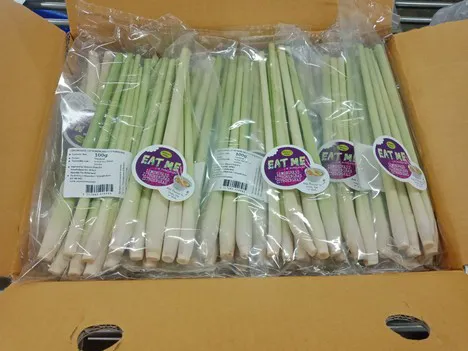
Lemongrass mainly reaches the European food retail market via Nature's Pride.
More extensive import documentation
Meanwhile, certain produce is increasingly sourced elsewhere these days, Winter observes. "Thai mangoes of the Nam Dok Mai variety are no longer as prominent in European trade, which is of course due to the market dominance of Latin America. From there, it is cheaper to send large quantities of mangoes to Europe by sea (it takes 2-3 weeks to cross from South America, and at least 4-6 weeks from Asia). Also herbs of Thai origin are hardly offered anymore, but this is due to more extensive import documentation. Nevertheless, it is important to us to offer also marginal articles still, because the product variety has been our main strength for many years. Thailand continues to be a popular travel destination and returning holidaymakers are keen to access the variety of exotics and Thai cuisine."
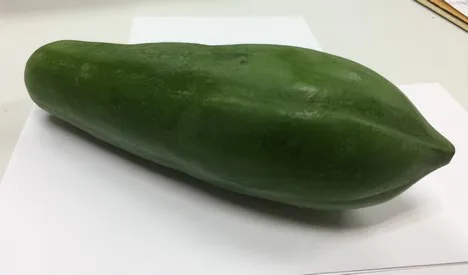
Green papaya tends to be used for salads, unlike the varieties from Latin America
Koerner Agro has been able to establish a strong market position in the European trade thanks to its strong focus on so-called niche products, its extensive certification and environmental requirements, and its close relationship with contract farmers at origin. The Thai exotics are supplied by strong distribution partners in the respective countries to retailers and wholesale markets in Germany, Austria, Spain, Switzerland and Great Britain. "There are only a few suppliers in Thailand who can meet the demands of customers in terms of quantity, certification and quality, which is particularly advantageous for us. Provided freight rates normalize in the foreseeable future, I am particularly positive about the future of our market segment."
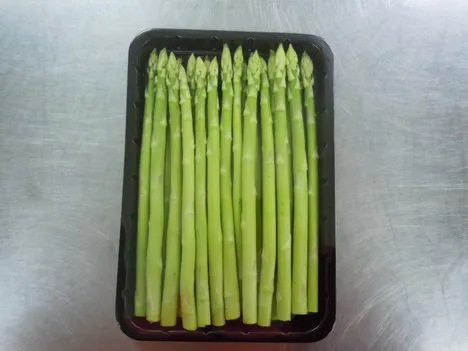
Thai green asparagus are part of Koerner Agro's basic product range
Images: Koerner Agro / Winter Trading GmbH
For more information:
Nicola Winter
Winter Trading GmbH / Koerner Agro
Hamburg, Germany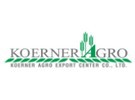
Tel : (+49)40-47195505
nicola@koerneragro.com
www.koerneragro.com
